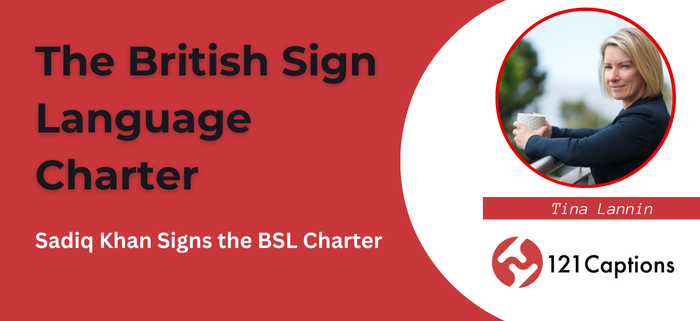Sadiq Khan Signs the British Sign Language Charter
London, a city known for its cultural diversity, took a significant step towards inclusivity as Mayor Sadiq Khan signed the British Deaf Association’s British Sign Language Charter. The charter, a creation of the British Deaf Association, is a commitment to promoting accessibility, addressing discrimination, and empowering the Deaf communities in the capital.
A pledge to empower
The Mayor, alongside Deputy Mayor for Communities and Social Justice, Dr Debbie Weekes-Bernard, welcomed members of London’s Deaf communities and representatives from organisations working with or advocating for Deaf Londoners to witness this historic signing at City Hall.
The five pledges of the charter
The Charter is structured around five pledges, outlining specific actions to enhance accessibility and inclusion for Deaf people. These pledges include:
- Regular Consultation
Organisations commit to consulting with local Deaf people on a regular basis, ensuring their voices shape decisions.
- Access to Information and Services
Ensuring Deaf Londoners have seamless access to information and services, breaking down communication barriers.
- Support for Deaf Children and Families
Acknowledging the unique challenges faced by Deaf children and their families, and providing tailored support.
- Effective Communication
Ensuring City Hall staff working with Deaf people can communicate effectively using British Sign Language.
- Promotion of Learning BSL
Encouraging and supporting the learning and high-quality teaching of British Sign Language.
The Mayor’s vision
Sadiq Khan expressed the importance of Deaf Londoners participating fully in society without encountering unnecessary barriers. By signing the Charter, City Hall commits to meeting the needs of Deaf Londoners, upholding their rights, and ensuring access to information and services.
Positive acknowledgment
Rebecca Mansell, CEO of the British Deaf Association, commended City Hall for adopting the Charter, emphasising its significance in improving access and rights for Deaf Londoners. The BSL Act 2022, which recognised British Sign Language as a language of Great Britain, marked a historic milestone, and City Hall’s commitment reflects a positive step towards inclusion.
A city at the forefront
This move aligns with City Hall’s broader efforts to lead by example in fostering inclusivity. In 2021, City Hall took a pioneering step by publishing disability pay gap data, accompanied by an action plan to address disparities. The Mayor encourages other organisations to follow suit through initiatives like the Good Work Standard.
Inclusive measures already in place
City Hall has already implemented several measures to ensure inclusivity. Events in Trafalgar Square, from St Patrick’s Day to Pride, include BSL interpretation. People’s Question Time and the State of London Debate also feature BSL interpreters, enabling Deaf participation in discussions about issues affecting them.
Other initiatives include collaboration with Deaf and Disabled people’s Organisations (DDPOs) and funding for higher-level qualifications in BSL. The Adult Education Budget provides opportunities for Deaf individuals, and the DDPO Forum informs City Hall’s policies and initiatives through shared experiences and perspectives.
In championing the British Sign Language Charter, City Hall not only embraces inclusivity but sets a standard for organisations to actively address structural inequalities and prioritise accessibility in their policies.




Leave a Reply
Want to join the discussion?Feel free to contribute!